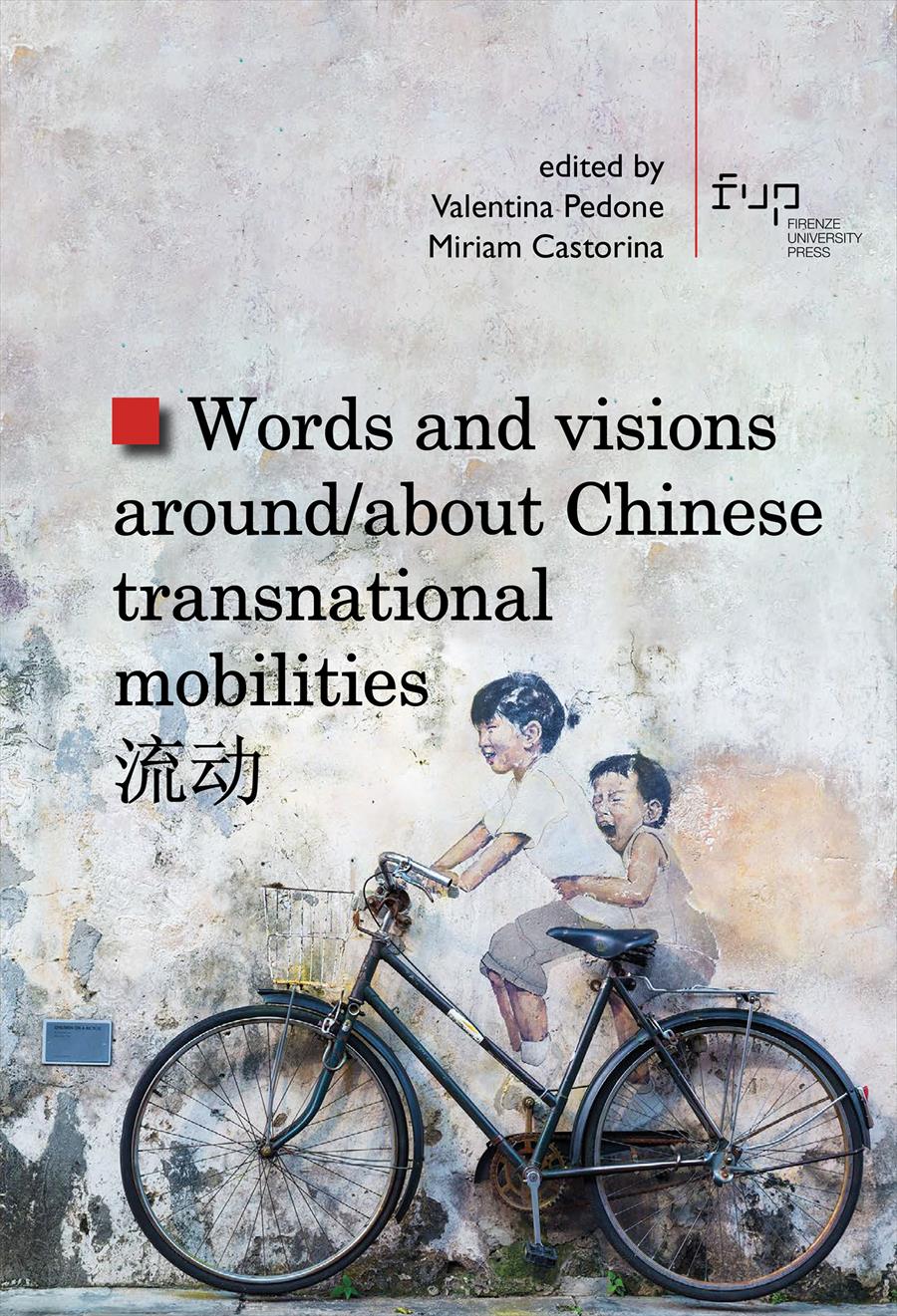- Words and visions around/about Chinese transnational mobilities 流动
- A cura di Valentina Pedone, Miriam Castorina
Writing for the wor(l)ds: the reflection on language in Yiyun Li’s literary production
- Martina Renata Prosperi
- © 2023 Author(s) |
- CC BY 4.0
- DOI: 10.36253/979-12-215-0068-4.14
Yiyun Li, b. 1972, moved from Beijing to the US in 1996, where she soon realized to be a talented writer. Although her early works, including the collections of short stories A Thousand Years of Good Prayers (2005) and Gold Boy, Emerald Girl (2010), and the novels The Vagrants (2009) and Kinder Than Solitude (2014), still privileged Chinese settings and characters, after the publication of her memoir Dear Friend, from My Life I Write to You in Your Life (2017) the literary landscape depicted by Li was amplified with autobiographical anecdotes and reflections on literature, human relations and language. Building upon psychoanalytical hints, this article offers a close reading of Where Reasons End (2019) and Must I Go (2020), reflecting on Li’s literature from a global perspective, and arguing that her contribution to world literature lies in her bold dissociation from any conventional, crystallized and thus imprisoning use of language.
- Keywords:
- Yiyun Li,
- World Literature,
- Sinophone Studies,
- Exophony,
- Jacques Lacan,
Roma Tre University, Italy - ORCID: 0000-0001-9512-7642
- Bauman, Zygmunt. 2000. Liquid Modernity. Padstow: Polity Press.
- Codeluppi, Martina. 2018. “Writing Memory: Global Chinese Literature in Polyglossia.” PhD diss., Université Sorbonne Paris Cité; Università Ca’ Foscari.
- Dai, Yuexing 戴月行. 2013. “Jingxiang: duzhe wei tazhe he zuozhe wei tazhe 镜像: 读者为它者和作者为它者.” [The image in the mirror: the reader as the Other and the author as the Other]. Dangdai Wentan 3: 76-80.
- Friani, Stefano. 2017. “La letteratura dona la vita. Intervista alla scrittrice Yiyun Li.” .” Altri animali - Scenari culturali, September 29, 2017. http://www.altrianimali.it/2017/09/29/intervista-yiyun-li/
- Grosjean, Francois, and Ping Li. 2013. Psycholinguistics of Bilingualism. Chichester: Wiley-Blackwell.
- Guo, Xiaolu. 2017. Nine Continents. New York: Grove Press.
- Lacan, Jacques. (1957) 2004. “The Instance of the Letter In the Unconscious or Reason since Freud.” In Literary Theory: An Anthology 2nd Edition, edited by Julie Rivkin and Michael Ryan, 447–61. Oxford: Blackwell Publishing.
- Laity, Paul. 2017. “Interview – Yiyun Li: ‘I used to say that I was not an autobiographical writer – that was a lie’.” The Guardian, February 24, 2017. https://www.theguardian.com/books/2017/feb/24/yiyun-li-interview-dear-friend-from-my-life-i-write-to-you-in-your-life.
- Lam, Melissa. 2011. “Diasporic Literature: The Politics of Identity and Language.” In Journal of Asia Pacific Communications 21 (2): 304–13. DOI: 10.1075/japc.21.2.08lam
- Li, Bing 李冰. 2015. “Li Yiyun xiaoshuo zhong yihua yu guihua de yuyan celue 李翊云小说中异化与归化的语言策略.” [Linguistic strategies of estrangement and domestication in Li Yiyun’s narrative]. Journal of Jiangsu Second Normal University 31 (10): 81–6.
- Li, Jing 李静. 2009. “Kunjing zhong de ren—huode yu zhongguo nü zuojia Li Yiyun xiaoshuo lun 困境中的人—获得语中国女作家李翊云小说论.” [People in the midst of adversity. A speech on the fiction of Chinese writer Yiyun Li]. Journal of Southwest Minzu University 212: 269-73.
- Li, Yiyun 李翊云. 2006. A Thousand Years of Good Prayers. New York: Random House Trade Paperback Edition.
- Li, Yiyun. 2017. Dear Friend, from My Life I Write to You in Your Life. New York: Random House.
- Li, Yiyun. 2019. Where Reasons End. New York: Random House.
- Li, Yiyun. 2020. Must I Go. New York: Random House.
- Tang, Lei 唐蕾, and Yu Hongliang 俞洪亮. 2018. “Wenhua wuyishi yu shenfen jiangou 文化无意识与身份建构.” [Cultural Unconsciousness and Identity Construction]. Foreign Languages Research 171: 85-91.
- Tsao, Hsingyuan, and Roger T. Ames. 2011. Xu Bing and Contemporary Chinese Art: Cultural and Philosophical Reflections. New York: SUNY Press.
- Wang, Kai 王凯. 2019. “Li Yiyun ‘Liyou jieshu de difang’: yi bu ziwo hejie de xiaoshuo 李翊云 “理由结束的地方” :一部与自我和解的小说.” [Where Reasons End by Yiyun Li: A Novel for Reconciling with Myself]. Wenyi bao ,June 14, 2019. http://www.chinawriter.com.cn/n1/2019/0614/c404092-31136582.html.
- Zhai, Min 翟敏. 2013. “Dui Li Yiyun ‘Qian nian qi yuan’ zhong fu nü guanxi de fenxi 对李翊云《千年祈愿》中父女关系的分析.” [An analysis of the father-daughter relationship Li Yiyun’s “A Thousand Years of Good Prayers”]. Northern Literature 7.
- Zheng, Haijuan 郑海娟. 2019. “Xugou yu jishi de jiexian. Li Yiyun xin zuo 'Lixing zhongjie zhi chu' de xiezuo fengge zhuanxiang 虚构与纪实的界限-李翊云新作"理性 终结之处"的写作风格转向.” <[On the border between fiction and reality. The change of style in Yiyun Li’s new work, Where Reasons End]. World Literature Recent Developments 9: 37-45.
Informazioni sul capitolo
Titolo del capitolo
Writing for the wor(l)ds: the reflection on language in Yiyun Li’s literary production
Autori
Martina Renata Prosperi
Lingua
English
DOI
10.36253/979-12-215-0068-4.14
Opera sottoposta a peer review
Anno di pubblicazione
2023
Copyright
© 2023 Author(s)
Licenza d'uso
Licenza dei metadati
Informazioni bibliografiche
Titolo del libro
Words and visions around/about Chinese transnational mobilities 流动
Curatori
Valentina Pedone, Miriam Castorina
Opera sottoposta a peer review
Numero di pagine
204
Anno di pubblicazione
2023
Copyright
© 2023 Author(s)
Licenza d'uso
Licenza dei metadati
Editore
Firenze University Press
DOI
10.36253/979-12-215-0068-4
ISBN Print
979-12-215-0067-7
eISBN (pdf)
979-12-215-0068-4
eISBN (epub)
979-12-215-0069-1
Collana
Studi e saggi
ISSN della collana
2704-6478
e-ISSN della collana
2704-5919
